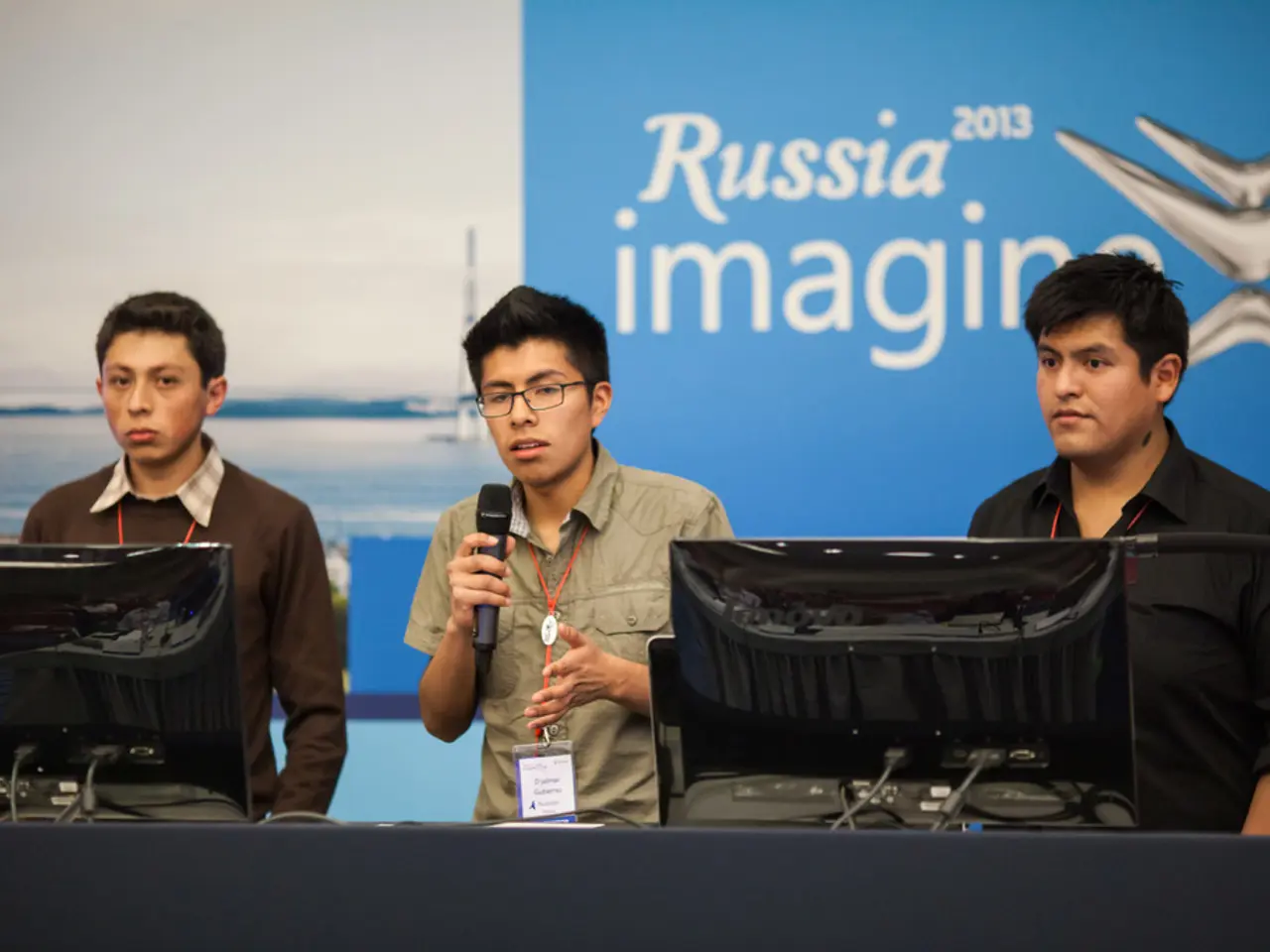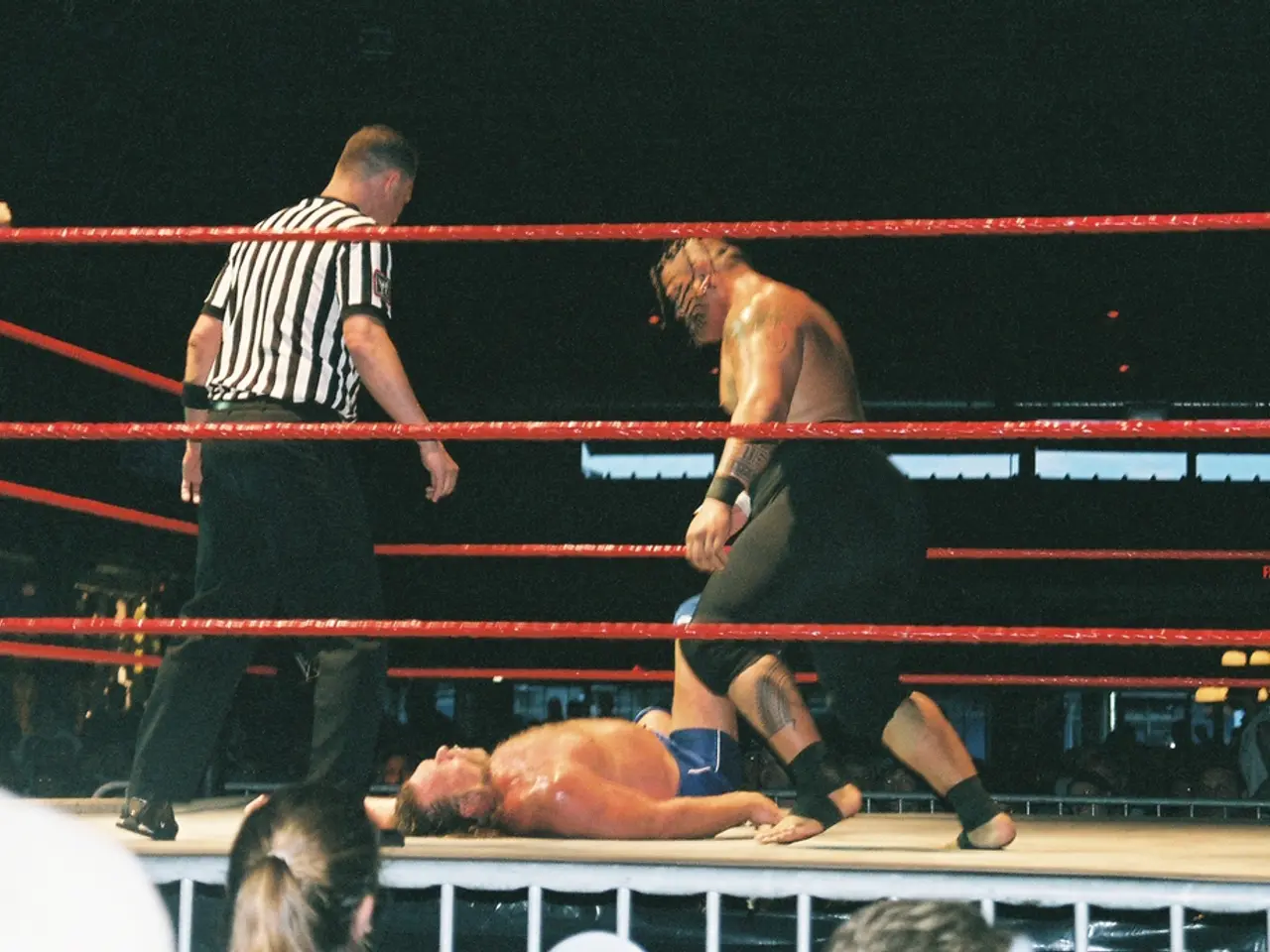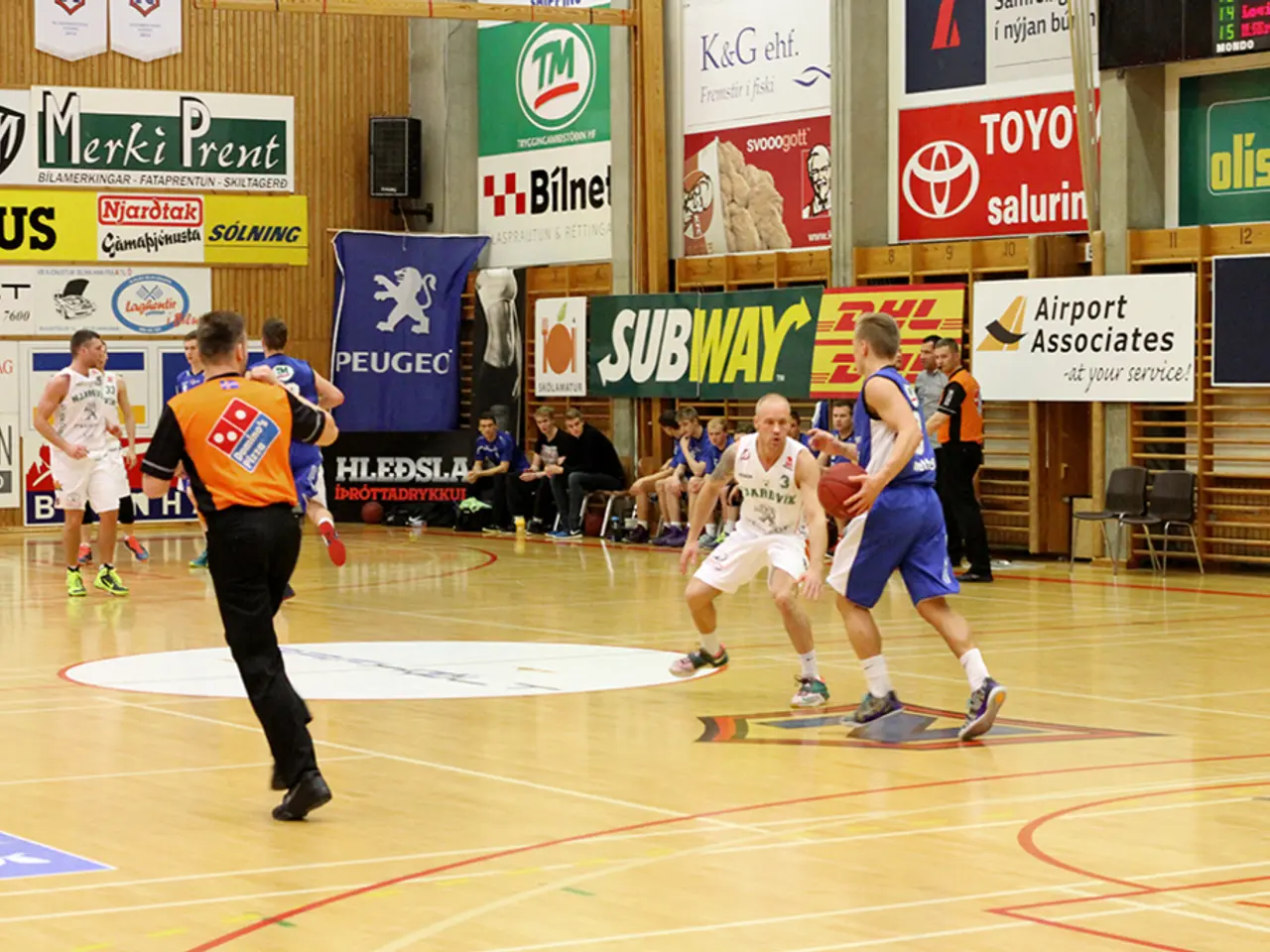Ukraine's President, Selensky, won't cede his sovereign land to Russia.
The stage is set for a high-stakes meeting between US President Donald Trump and Russian President Vladimir Putin in Alaska next week, with the focus on finding a long-term peaceful solution to the ongoing Ukraine crisis.
The last time Putin visited the US was back in 2015 during the Obama administration. Since his return to the White House, Trump has spoken to Putin several times, recently setting Moscow an ultimatum to end the Ukraine war, which expired on the same day Trump announced his meeting with Putin for August 15.
Trump views the Alaska meeting primarily as a "listening exercise" aimed at assessing whether a ceasefire with Putin is possible. He warns Russia of "severe consequences" if Putin does not agree to peace terms and acknowledges frustration with Putin's ongoing attacks on Ukraine. However, Trump does not see himself as the main dealmaker and has suggested a potential second meeting that could include Ukrainian President Volodymyr Zelenskyy if necessary.
Zelensky, on the other hand, insists that the central topic of any meeting between Trump and Putin should be an immediate ceasefire and the defense of Ukraine's territorial integrity. He hopes for follow-up contacts after the Trump-Putin meeting and supports multilateral talks including leaders of Ukraine, the US, Russia, and Turkey to end the war.
Putin is expected to use a strategy of military pressure through mass attacks on Ukrainian cities and economic offers to isolate Ukraine and Europe. According to experts, Putin is likely to demand significant territorial concessions from Ukraine at the talks, aiming to portray Ukraine as the obstacle to peace. This demand would require Ukraine to surrender several thousand square kilometers of territory and strategically important cities.
However, Zelensky rejects these territorial concessions, stating that the answer to Ukraine's territorial questions lies in the Constitution of Ukraine. He criticized the upcoming Alaska meeting, stating that the war in Ukraine cannot be ended without Ukraine. Every decision made without Ukraine, he says, is against peace.
Ukraine has been defending itself against a large-scale Russian invasion for almost three and a half years. The complexity of the Ukraine situation was acknowledged by Trump, stating that it's "complicated, really not simple."
Despite the tense atmosphere, Trump and Putin last met in 2019 on the sidelines of a G20 summit in Japan. The Kremlin has invited Trump to Russia following the Alaska meeting. It remains to be seen how this complex situation will unfold in the days to come.
[1] ABC News. (2020). Trump speaks with Putin on Ukraine, Biden, China, and more. [online] Available at: https://abcnews.go.com/Politics/trump-speaks-putin-ukraine-biden-china-more/story?id=71297376
[2] The Guardian. (2020). Trump and Putin to hold talks on Ukraine crisis in Alaska. [online] Available at: https://www.theguardian.com/us-news/2020/aug/04/trump-putin-ukraine-alaska-summit
[3] The Washington Post. (2020). Putin's strategy in the Ukraine crisis, explained. [online] Available at: https://www.washingtonpost.com/world/europe/putins-strategy-in-the-ukraine-crisis-explained/2014/08/25/6e17a71a-0e06-11e4-9918-4b674a7c6a8d_story.html
- The European Union, with its foreign policy focusing on global peace and stability, has a responsibility to closely monitor the ongoing Ukraine crisis, given the pending meeting between US President Donald Trump and Russian President Vladimir Putin, as any developments in this war-and-conflicts-related politics could have far-reaching implications, making it a general-news topic of interest for the EU.
- Amidst escalating tensions and calls for a lasting peaceful solution to the Ukraine crisis, Ukrainian President Volodymyr Zelensky emphasizes the importance of the EU's involvement in multilateral talks aimed at ending the war, considering that the EU's values of democracy, human rights, and territorial integrity align with Ukraine's own aspirations and are key to achieving a sustainable peace in the region.






